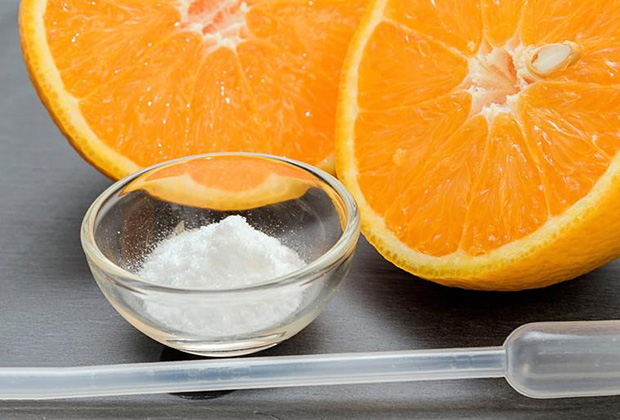Ascorbic acid is a known form of vitamin C. It is a water-soluble vitamin that helps keep our skin, hair and bones healthy.
Most fruits and vegetables contain ascorbic acid, and its medicinal form helps treat those who are deficient in vitamin C, scurvy, delayed wound healing, and bone healing.
Related Article:

But what are the effects of ascorbic acid on cancer treatment?
Introduction
Cancer is a deadly disease and also one of the leading causes of death worldwide. Despite various advances in cancer prevention and treatment, the side effects of anti-cancer drugs remain a major concern for researchers.
In 2018, the World Health Organization (WHO) estimated that 9.6 million people have died from cancer, which is projected to cause 16.4 million deaths by 2040. However, advances in cancer research have been made to reduce mortality and improve survival.
Cancer still accounts for about one in six deaths and is the second leading cause of death worldwide. There are several approaches to preventing and treating cancer, such as chemotherapy, radiotherapy, and surgery, and some signs of progress have been made, but there is still a need to develop pioneering and effective treatments for cancer.
Prevalence of drug side effects is a problem in existing cancer treatments. The most common side effects are nausea, vomiting, hair loss, diarrhea, anemia, fatigue and anorexia, and long-term weight changes.
The use of these methods can cause permanent dysfunction of the gastrointestinal tract and damage to the reproductive system. Therefore, finding new and effective drugs with fewer side effects is essential for the treatment of cancer.
Ascorbic acid is a vital micronutrient and an essential vitamin needed by our body for normal physiological function, which has antioxidant and anti-cancer activity.

Although the body can not synthesize ascorbic acid, it is abundant in nature in terms of foods and other natural resources and is also available as a nutritional supplement.
In the process of developing anticancer drugs, ascorbic acid plays a role in inhibiting cancer progression (through various mechanisms including removal of reactive oxygen species (ROS), selective production of ROS and encouraging their cytotoxicity against tumor cells and inhibition of glucose metabolism), has played an important role.
So far, several ascorbic acid analogues have been developed for their anti-cancer and antioxidant activity.
A current review of the mechanisms of antitumor activity of ascorbic acid, a set of its derivatives and its biological activity, introduces them as anticancer agents.
Mechanism
Ascorbic acid is used as a health supplement in various formulas such as oral suspension powders, capsules, granules for oral solution, oral solution powders, tablets, oral drops and syrups in combination with proteins, acids Omega 3 fats, sugar, vitamins A, B1, B2, D, E, methylcobalamin (B12), pyridoxine (B6), niacin (B3), biotin (B7), pantothenic acid (B5), folic acid (B9), L-Arginine, calcium, copper, iodine, iron, magnesium, phosphorus, potassium, selenium, sodium and zinc
Occasionally, in dietary supplements, ascorbic acid may contain mineral ascorbates in the form of calcium ascorbate or sodium ascorbate.
Depending on the dose and method of use, ascorbic acid shows antioxidant or anti-cancer activity. At lower concentrations, it acts as an antioxidant, and at higher drug concentrations, it acts as a prooxidant.
Ascorbic acid acts as an antioxidant by reducing the unstable free radicals of oxygen, nitrogen and sulfur, as well as increasing the activity of other antioxidants such as tocopherol (vitamin E). Thus, ascorbic acid protects DNA, amino acid residues, and lipids from oxidation by free radicals and maintains their integrity and prevents their harmful mutations.

In a laboratory study, it was found that ascorbic acid in high concentration inhibits cell migration and capillary tube formation. Accordingly, ascorbic acid can be useful in preventing the further growth and spread of tumor cells.
In addition, ascorbic acid not only protects our body against free radicals as an antioxidant and as an antioxidant agent damages cancer cells, but also is involved in many important physiological functions such as collagen formation, wound healing and tissue repair. Processes such as the growth and strength of bones, cartilage and teeth
In addition, ascorbic acid is less toxic than normal cells and is inexpensive and readily available. Therefore, it can be an ideal agent for developing and building an anti-cancer agent.
Summary
Recent discoveries have increased our knowledge of the biological functions of ascorbic acid and highlighted a number of interesting hypotheses that suggest that there are good and plausible reasons to consider the use of ascorbic acid as an adjunct therapy for cancer.
We believe that advances in research will soon lead to the development of effective protocols for the use of ascorbate in the clinical setting of cancer. Ongoing clinical trials are helping to identify people who may be using ascorbate therapy.
Due to its non-toxicity, availability and low cost, we hope that new research on the functional mechanisms of this valuable substance will help to obtain new information on the eradication of cancer.
To buy ascorbic acid or to know the price of ascorbic acid, contact the experts of the collection through our contact us page.
Related Articles:
